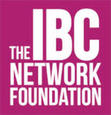Olivia Juarez is a Pediatric Genetic Counselor at the Children’s Hospital of San Antonia. She graduated from Emory University School of Medicine with a Master of Medical Science in Human Genetics and Genetic Counseling. We asked her a few questions about genetic testing, and here is what she had to say.
Who should consider genetic testing?
The cancer genetics community typically refers to a national set of guidelines for genetic testing called the NCCN, or National Comprehensive Cancer Network. The guidelines provide the following factors to consider when recommending genetic testing. We might consider Hereditary Breast and Ovarian Cancer Syndromes for women with:
- Breast cancer under age 50
- Ashkenazi Jewish heritage
- bilateral breast cancer (not a metastasis but rather two individual cancers)
- breast AND ovarian cancer in one the woman
- Family member with male breast cancer, pancreatic cancer, or peritoneal/fallopian cancer
multiple family members with breast and/or ovarian cancer across multiple generations
- A close family history of any of the above
*Note: these guidelines are updated every year and it’s important to consult a genetics professional before receiving genetic testing.
Should people with no family history of cancer consider genetic testing?
The general population of women in the United States has a 12% chance of developing breast cancer by age 70 and a 1.5% chance of developing ovarian cancer by age 70. Generally, genetic testing is not offered to women that do not have a personal or family history of breast or ovarian cancer. However, these numbers may impact each woman differently. Percentages increase based on which family members have what types of cancer, if any. Talking to your doctor about a referral to a genetic counselor may be helpful if these numbers are still concerning to you. A genetic counselor can guide you through your concerns and help you weigh all of your personal options. Typically, insurance companies do not cover genetic testing if you do not meet the criteria in the previous question (above). However, some labs today offer self pay prices as low as $250.
What are the benefits to knowing if you have a higher risk of cancer?
Many people pursue genetic testing to relieve uncertainty, plan their family or career around preventive surgery, and to get information for family members. If you do have a positive genetic test result, the following may be available to you:
- preventive screening using MRI, monitoring by a specialized clinic if one is located near you
- clinical trials for carriers of changes in the BRCA1 and BRCA2 genes; see ClinicalTrials.gov
- tailored chemotherapy such as veliparib, olaparib, rucaparib, and neratinib
- PARP inhibitor therapy
- slowing down repair mechanisms that may make BRCA1/BRCA2 cancers more responsive
- family members may be able to obtain insurance policies at lower rates before having genetic testing
We know that not everyone who gets cancer has a genetic mutation. What do you recommend for people who get negative results but want to screen for cancer anyway?
It might be helpful to meet with a genetic expert or genetic counselor to discuss resources available. You can find one by phone or in person at nsgc.org. For people that have received a negative test result, it’s important to understand the limitations of testing. A negative result does not mean that you will never get cancer, but the chances are significantly reduced. Individuals that want to receive increased cancer screening should know that insurance typically does not cover the high cost of these screenings. You can contact your healthcare facility for an out-of-pocket or self pay price for these screenings. If your genetic testing is negative, you should still perform self breast exams monthly, obtain a mammogram annually beginning at age 40 (or 10 years before the earliest breast cancer in your family), and get a PAP smear and pelvic exam annually. Genetic testing is always advancing, and we recommend approaching a genetic counselor every few years to see what new testing options are available.
You can find a gentic counselor at www.nsgc.org.
Please note that while health insurance companies are barred from denying coverage to people with BRCA and other genetic changes, life insurance companies are not. If you have reason to believe you should be tested, you may want to secure life insurance first. More information at www.geneticliteracyproject.org.
The IBC Network Foundation was founded by Terry Arnold as a 501c3 in August 2011. She has her sights set on funding research as fast as the donations will allow.
The purpose of The IBC Network Foundation is simple:
- To fund research regarding Inflammatory Breast Cancer.
- To provide an avenue to network proactive education to the general population as well as the medical community regarding Inflammatory Breast Cancer.
We attend research meetings, serve on grant committee’s, advocate, educate and run online support groups, just to list a few ways we spend our time

Post new comment
Please Register or Login to post new comment.